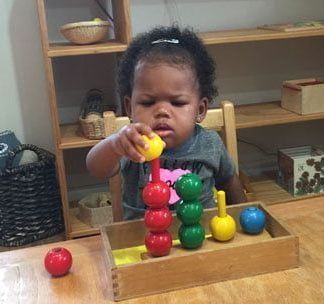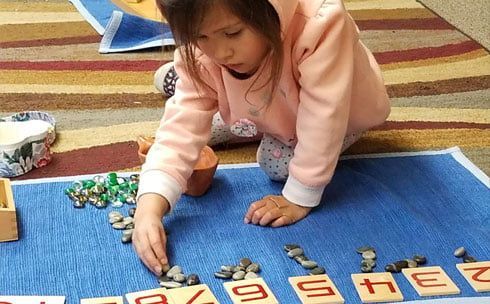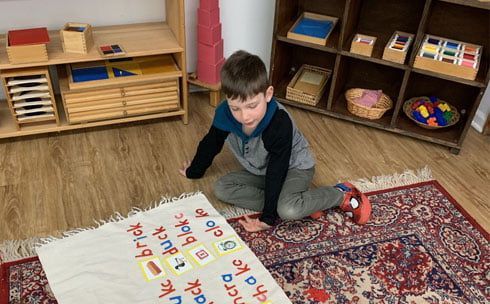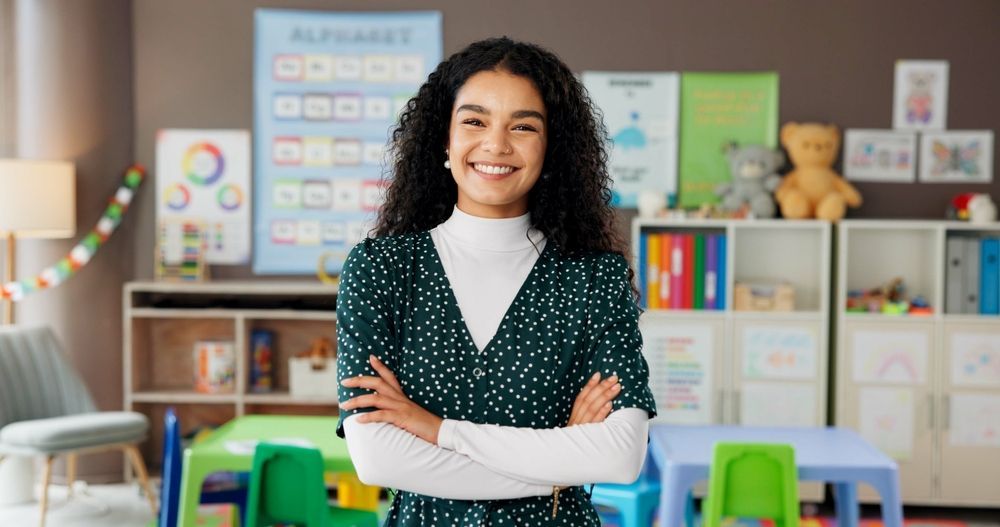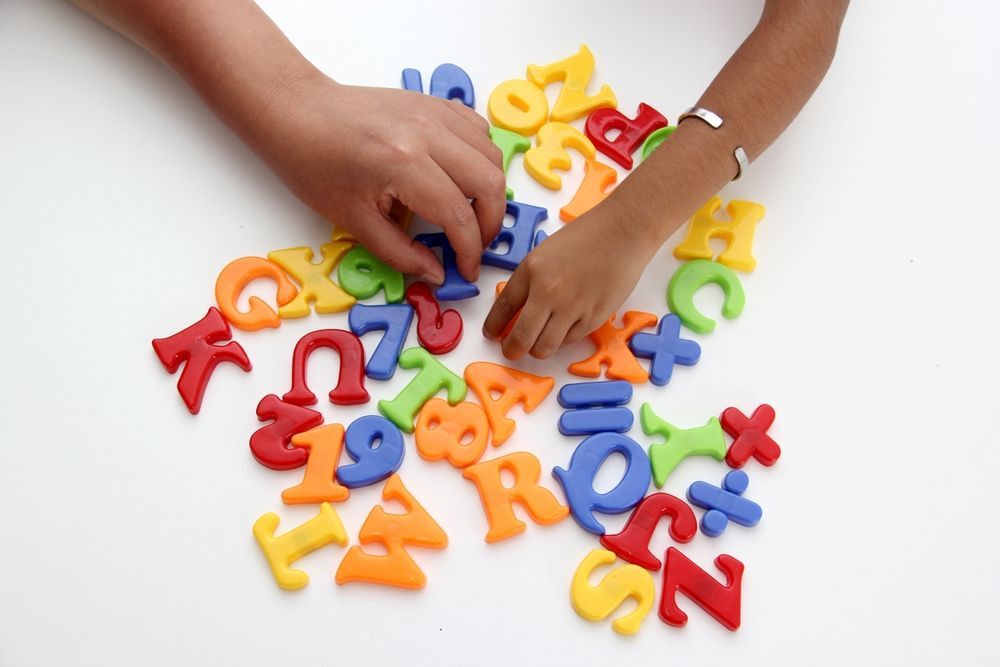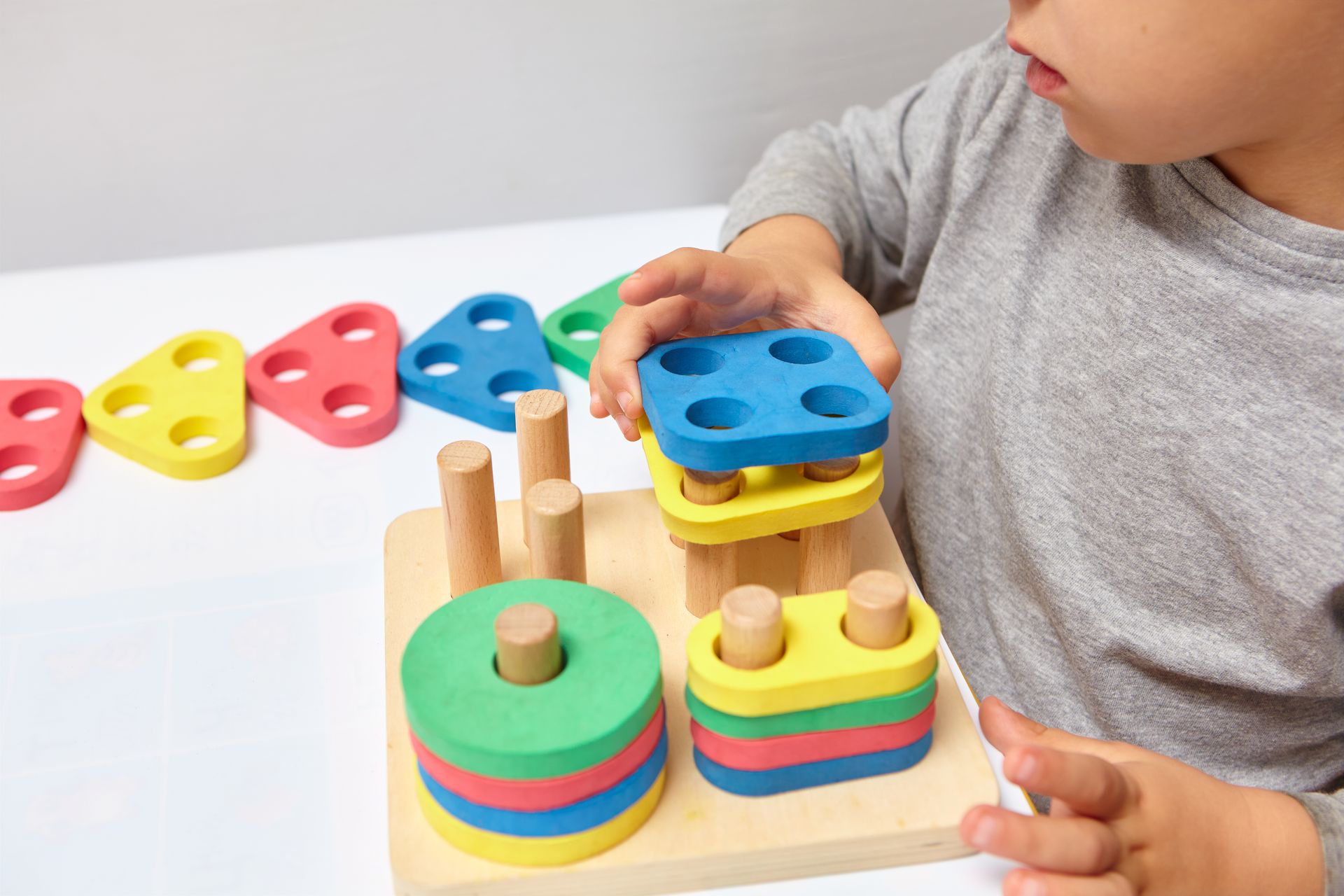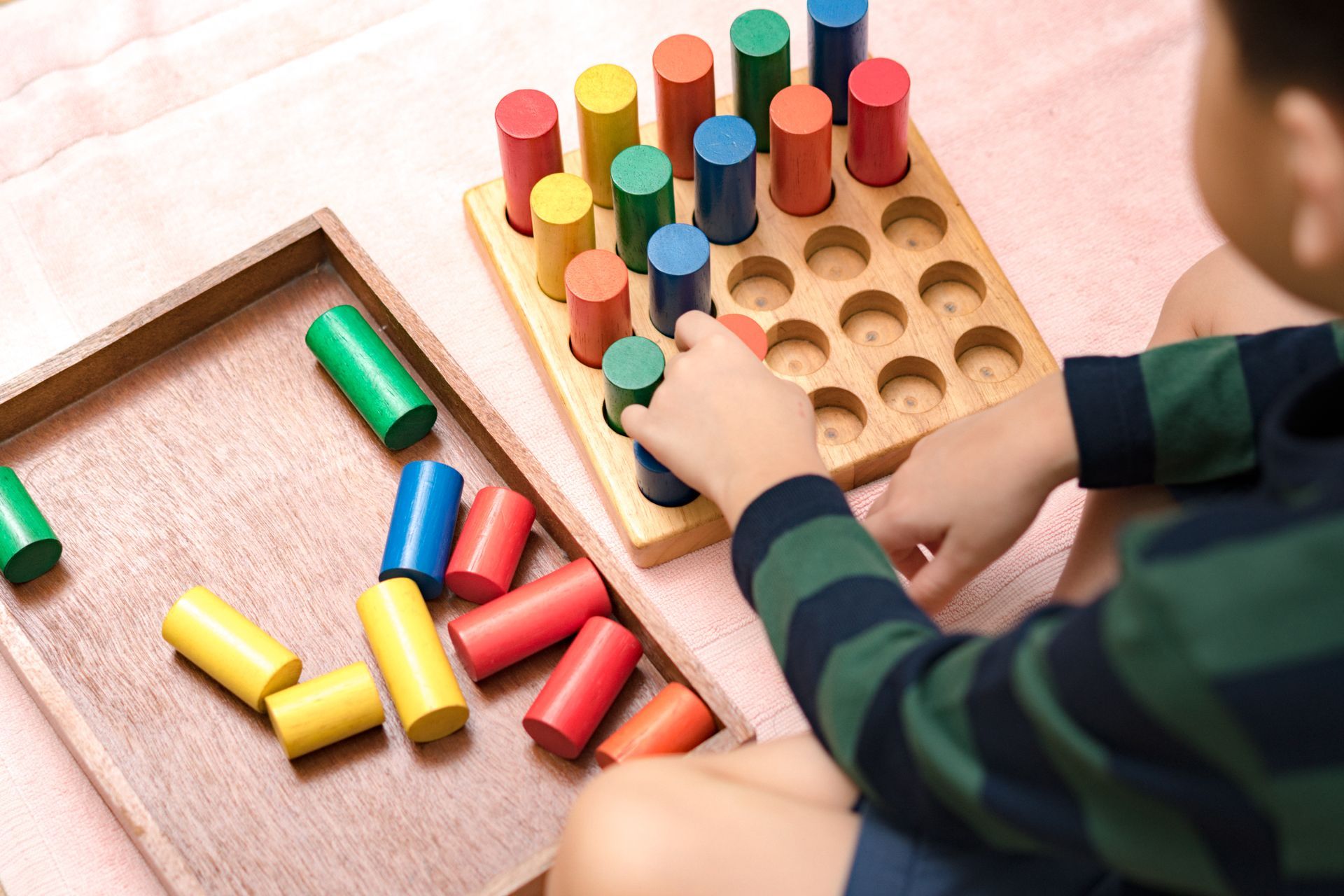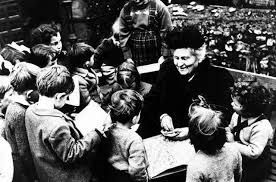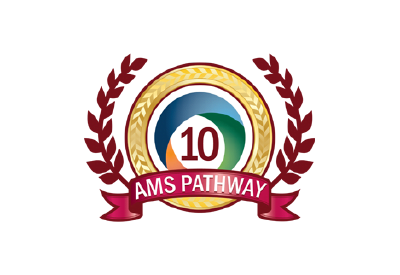How to Apply Montessori Organization at Home
Share this Article:

When between school days, does your child continue in their Montessori education and lifestyle? Remaining consistent in the Montessori method both at a Montessori school and in the home alleviates any confusion for the child of how and where to behave and learn. For parents who are new to Montessori, the first step to apply it in the home is to START. In the content below, we explore how to effectively apply Montessori beyond the classroom and into the home by answering frequently asked questions.
1. How Can I Effectively Simplify My Home?
More Than Materials
You may peer at Pinterest images with perfectly decorated playrooms full of expensive , wooden toys placed on fancy yet simple display areas. Not a single battery-operated toy is found anywhere in that room. After comparing a magazine-worthy playroom with your current playroom, you may feel discouraged in your attempts to apply the Montessori method beyond the classroom. Do not let it stop you!
Preparing and simplifying your home is not necessarily about buying new, wooden, non-battery-operated toys, but organizing and restructuring your current household items in a simpler manner. To effectively simplify your home, donate items your child no longer needs and neatly organize the remaining toys and materials. Organization is best for kids to learn and expect that there is a place for everything.
Rotate Toys
With the remaining toys, place a portion of them in storage and out of sight so that you can regularly rotate them with currently displayed toys. Rotating toys helps keep your child interested and engaged as you can regularly put out “new” things without breaking the bank.
When you offer limited options, it quickly becomes evident which toys spark your child’s curiosity once you notice that a once beloved toy has remained on the shelf for a whole week untouched. As a result, you learn when to rotate it out for something different.
When organizing your child’s playroom, refrain from keeping the toys and activities currently in use out of sight and avoid throwing toys in a large toy bin. Therefore, utilize bookshelves and baskets to both contain and display each item. As a result, your child knows where to find and return each toy and activity.
2. Which Household Chores and Tasks Best Comply with Montessori Applications?
Household tasks work well with the Montessori method, teaching children responsibility and enhancing their concentration and motor skills. However, when introducing tasks, evaluate each task against your child’s age to ensure their capability to complete it. Most of the tasks mentioned below work well with both toddlers and children under the age of six if you adapt accordingly.
Kitchen
Although it requires extra patience as a parent, delegating certain cooking and food preparation tasks to your children is a great Montessori activity. Children are exceedingly capable of washing fruits and vegetables, measuring dry ingredients, buttering toast, mixing ingredients, and much more.Additionally, allow them to assist with the cleaning process such as sweeping crumbs off the ground, wiping countertops, setting the table, and washing dishes. Be prepared for extra messes and have a large supply of hand towels or paper towels nearby.
To create the most successful environment, set up a small table and chair their size so they can prepare food and get their snacks from the pantry or refrigerator. Additionally, provide an easy way for them to wash their hands in between cooking and cleaning tasks. As your child excels at simpler tasks, begin assessing how else they can safely and successfully help you in the kitchen!
Bedroom
Applying Montessori beyond the classroom does not always require fancy toys and tools. Simple bedroom care such as making the bed, cleaning up toys, hanging up clothes, and straightening shoes are all tasks your child can do, even as a toddler. The parent should not feel responsible to spend time cleaning their child’s little messes, but rather teach and encourage their child to have responsibility over their own items . Simple organizational and tidying tasks delegated to your child helps them establish good life skills at a young age.
TheMontessori method encourages parents to value and respect their child’s opinions, not force an activity upon them. As a result, these activities performed on an at-will basis creates and boosts their resilience and self-motivation , increasing their overall satisfaction. To creatively encourage your child in this way, let them decide how to organize their clothes and shoes. Will they sort them by color or size?
Outdoors
As the seasons change, your child may wish to play outside more often. Therefore, encourage Montessori behavior outside the classroom by providing them with a shelf in the garage to organize the toys they are responsible for keeping safe, clean, and organized.
Do you have a backyard garden or house plants? Encouraging your child to help water plants creates educational opportunities such as explaining why plants need water and other elements required for growth like dirt, sunlight, and oxygen. Additionally, as your child continually waters the plants over the course of a few weeks, they can feel the sense of accomplishment when flowers blossom and grow!
3. How Can I Help Enhance My Child's Imagination with a Montessori Organization at Home?
Imagine with Them and Ask Thought-Provoking Questions
The Montessori method is about sending the message that the child can imagine anything, and the world is their oyster. To help build creativity in your child, delve into their mind to understand the way they think, and collaborate with them. Below are some imaginative activities to help your child expand their creative horizon:
- Create stories with your child helps them think about “what’s next?”
- Take turns asking “Would-you-rather” questions (example – “Would you rather be able to fly or run at super-sonic speed?”)
- Hang interesting artwork at their eye level and ask them to make up a story about what is in the painting or drawing
- Read stories together, using different voices for each character
- Let them give a performance of their own songs and dance moves
- When learning about new things, ask them what they think about it
Encourage Concentration
Concentration is an important attribute to build in your child, and one of the best ways to develop concentration is through completing an activity. Therefore, encourage your child to work through an entire process and have them finish something. Help to build them up for more advanced work that they will see in the future with core subjects like math and science. A great activity to encourage concentration is by having your child use a squeegee on a wet mirror or equivalent surface to get it completely clean.
Unfortunately, technology and screen time are unhelpful for children in this area. Fast-paced technology gives your child the expectation that everything must be completed quickly and fails to boost confidence and self-control in your child.
Be the “Prepared Adult” at Home That the Teacher Is in the Classroom
If everything is last minute, children will face a hard transition from home to school. Therefore, preparation immensely helps the parent at home. As routine and consistency are main components to Montessori learning, create and follow a morning routine and schedule so everyone knows what to expect. As long as your child is involved in the process, it is not as difficult.
Here are some ways you can help set up expectations for your child:
- Talk about things the night before
- Before bedtime, help them set out their clothes for the following day
- Keep your home environment-friendly to help your kids get prepared in the morning by themselves
- Remain firm on created expectations for the next day’s events
If the child changes their mind the next morning, have a calm discussion with them about staying with their decision. Do not react emotionally; instead, go to their eye level and calmly and respectfully talk with them and make the moment a learning opportunity using Montessori language. Additionally, refrain from always giving praise and rewards for good behavior. Though encouragement is great, you do not want your child to begin expecting tangible prizes for every good deed.
Montessori Learning Strategies with Mansio
At Mansio Montessori of Geneva , we are dedicated to preparing your child's development with optimal learning environments that stimulate educational development both at home and in school. By tailoring the educational experience to each child, we inspire our students with a passion for learning. If you want to learn more about our early childhood programs and what these may look like for your child, please contact us .

